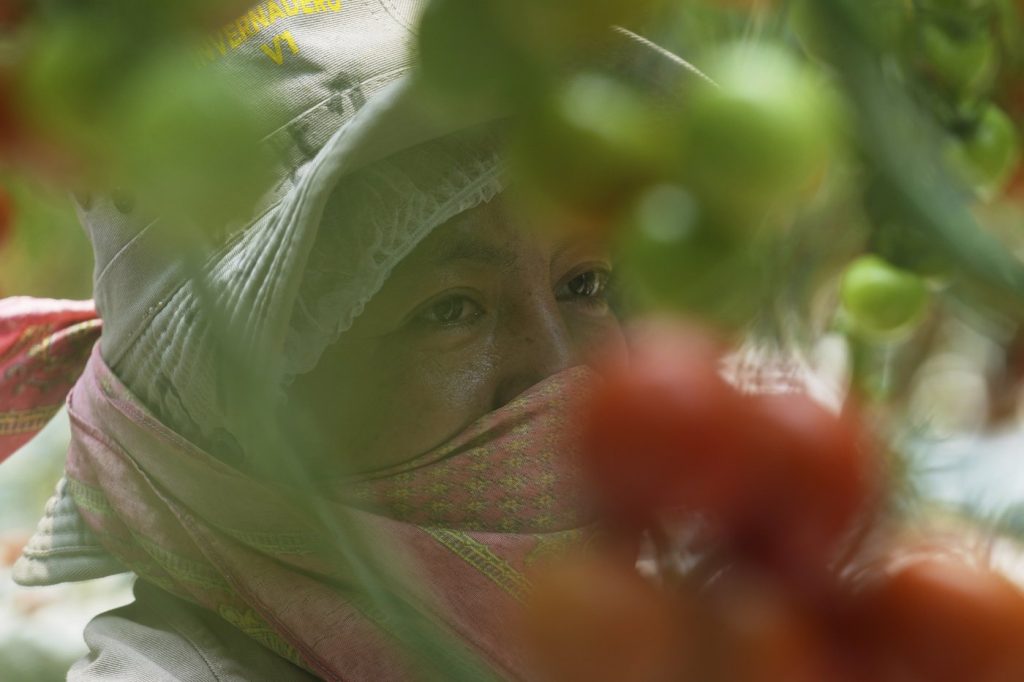AJUCHITLAN, Mexico (AP) – The Trump administration's decision to impose a 17% duty on fresh tomatoes imported from Mexico has created a dilemma for a country that is the largest provider of tomatoes to U.S. consumers. This import tax, which took effect on July 14, is the latest in a series of protectionist measures enacted by an administration that has threatened tariffs on numerous countries, including Mexico, a key trading partner. The Mexican government is simultaneously negotiating to avoid a looming 30% general tariff scheduled to begin on August 1.
While the full impact of the tomato tariff remains to be seen, a prominent grower and exporter in central Mexico illustrates how targeted tariffs can disrupt the agricultural sector. Veggie Prime, operating within nearly six acres of state-of-the-art greenhouses in Queretaro—one of Mexico's top tomato-producing states—ships around 100 tons of fresh tomatoes weekly to Mastronardi Produce, the leading distributor in the U.S., with clients that include major retailers like Costco and Walmart.
Moisés Atri, the export director at Veggie Prime, has been exporting tomatoes to the U.S. for 13 years. He notes that substantial investments and production costs make it difficult for producers to adjust quickly to such tariffs, especially since they are contractually required to sell all their output to Mastronardi until 2026. “None of us (producers) can afford it,” Atri stated, expressing concern over profitability and the need to pass along costs to retail clients. In the initial week of the tariff, Veggie Prime absorbed the entire charge, but their client subsequently agreed to raise tomato prices by 10% in the second week, which has eased some financial strain.
Mexican tomato exports were valued at $3 billion last year, and industry experts predict that the new tariff could decrease exports by 5% to 10%. The Mexican Association of Tomato Producers asserts that the industry supports about 500,000 jobs. Juan Carlos Anaya, director general of Grupo Consultor de Mercados Agrícolas, warns that a reduction in tomato exports could lead to as many as 200,000 job losses, heavily impacting the agricultural workforce.
The U.S. Commerce Department defended the tariff as necessary to protect American farmers from what it considered artificially low prices for imported Mexican tomatoes. While growers in California and Florida are positioned to gain from this development, most of their production focuses on processed tomatoes. Experts suggest that the U.S. would struggle to find equivalent fresh tomato imports to replace those from Mexico. Atri and other producers are awaiting a scheduled review of the tariff in two months as fresh tomato production in the U.S. typically begins to decrease in fall.
In response to the new tariff, the Mexican government has proposed exploring more stable international markets, such as Japan. However, producers are skeptical, as shipping tomatoes by plane would significantly increase costs. Atri mentions that Veggie Prime is experimenting with growing peppers to diversify options if tomatoes become less viable.
Mexican Agriculture Secretary Julio Berdegué has stated that the government will survey tomato growers to determine the support needed, particularly for small producers who are beginning to feel the negative effects of an over 10% drop in domestic tomato prices, driven by fears of a market oversupply.











